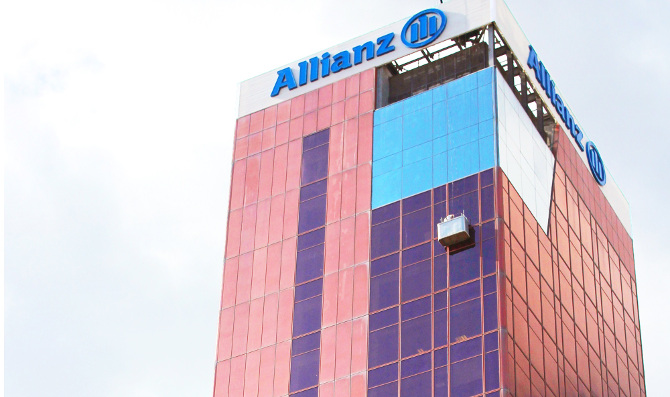As confidence in the Irish property market continues to grow the German insurance giant Allianz has confirmed it is investing €140m (£109m) in Irish investment vehicle IPUT.

In the Munich-based firm’s first venture into the Irish commercial sector, Allianz chief investment officer, Charles Pridgeon, said there were now “potential long-term returns” from such buy-ins.
“As the economic recovery in Ireland takes hold, supporting improving demand particularly in the domestic economy, we see the potential for strong long-term income returns at attractive levels for our stakeholders,” he explained, adding that “IPUT’s long-term investment strategy and approach coincides with our own.
“We are looking forward to an ongoing and mutually beneficial relationship in the interests of our respective stakeholders,” said Pridgeon.
Allianz Real Estate operates mainly in Europe, but has a strong presence in the United States, Asia and the Pacific. It currently manages about €30bn (£23bn) in global assets.
Although there have been several major Irish property deals this year — and around €5bn (£3.9bn) worth of assets are expected to change hands this year alone — the INPUT deal is the first major investment by a European pension fund since before the crash.
Since investors started buying Irish commercial property again many have been described as so-called “fast money” investments — big US private equity companies that specialise in acquiring distressed assets at rock-bottom prices.
Niall Gaffney is IPUT chief executive. He was “delighted” by his success at securing additional funds, adding that “it is very encouraging that global groups of the standing of Allianz are selecting IPUT as their investment fund of choice in this market.
“It also supports our corporate strategy to diversify IPUT’s shareholder base from pure Irish domestic pension funds to a broader audience of international institutional investors,” said Gaffney.
IPUT, which has more than €1bn in assets, has been particularly active this year. Its portfolio of properties consistently has an occupancy rate about 96 per cent and produces more than €70m (£54m) in annual rent.
In July, the fund recruited the National Asset Management Agency’s former head of asset management, John Mulcahy, as a board member. Two of its biggest 2014 deals were the August acquisition of the “Salix Portfolio” of commercial real estate in the centre of Dublin for €115m (£89m) and the purchase of One Grand Canal Square, Dublin, for a reported €93m (£72.5m) .
“European funds have been underbidders on several properties in Dublin,” commented one property expert. “Now, it looks like Allianz is doing things the old fashioned way — investing in an Irish property fund, rather than owning property outright.”
Previous Post
Norway Leaps into Top Ranks of Foreign U.S. Commercial R.E. Buyers – Second Only to Canada